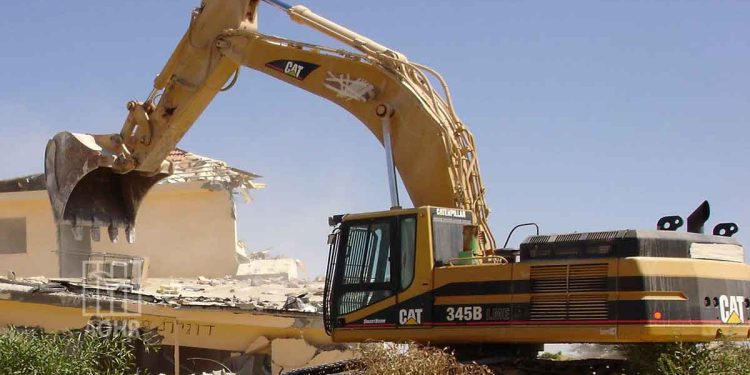The Israeli occupation forces (IOF) continue its systematic demolition and destruction operations against Palestinian homes in the West Bank, with several structures in Salfit, Bethlehem, and Ramallah being demolished on Tuesday.
Since the early hours of Tuesday, April 8, 2025, Israeli bulldozers stormed the Baqaan area west of Salfit and demolished two houses belonging to citizens Mohammad Khaled Sabrah and Alaa Mahmoud Barakat, despite both families having lived in the homes for seven years.
Moreover, the occupation authorities served demolition notices to dozens of residents in the town, reflecting an organised plan aimed at forcibly displacing Palestinians from Area C, as part of an ongoing and expanding settlement policy.
In the village of Wadi Fukin, west of Bethlehem, occupation forces demolished a 150-square-metre home belonging to Issam Basem Manasrah, preventing him from removing the furniture and belongings before the demolition was carried out.
Israeli bulldozers also demolished a wedding hall in Beit Liqya, west of Ramallah, owned by Khaldoun Assi. This reveals a deliberate targeting not only of residential homes but also of facilities that are vital to Palestinians’ social and economic life.
The attacks have not been limited to demolitions. In the early hours of the morning, extremist settlers set fire to a wedding hall located between the towns of Siniriya and Biddya, west of Salfit, and graffitied racist slogans inciting violence against Palestinians on its walls, including “Death to Arabs” and “long live Israeli people.”
This attack is part of a growing wave of settler violence targeting Palestinian property, supported by the protection provided to them by occupation forces.
In Deir Ibiza, west of Ramallah, the occupation authorities continued their policy of forced displacement by issuing two demolition notices for residential buildings owned by Faisal Wajeeh Taneeb and Mohammad Sarhan Mansour Karajah.
The first building consists of five storeys housing several families and commercial shops, while the second is a two-storey home with additional shops. The implementation of these demolitions would be a humanitarian catastrophe for dozens of Palestinians who would lose both their homes and their sources of livelihood.
These attacks, which coincide with the ongoing aggression on the Gaza Strip, form part of the ethnic cleansing policy pursued by the occupation. Under international law, demolitions and seizures of civilian property without absolute military necessity are considered war crimes under Article 8 of the Rome Statute of the International Criminal Court and represent a clear violation of Article 53 of the Fourth Geneva Convention, which prohibits the destruction of private property in occupied territories.
Despite these clear legal provisions, the occupation continues to implement its racist and settlement-driven plans, benefiting from the political cover and military support provided by the United States administration and other Western countries—entrenching its impunity.
Given these practices and the lack of accountability, how far would the occupation go with its repressive policies and could the international community move beyond issuing statements of condemnation to take tangible action to halt the ongoing crimes against the Palestinian people.



























